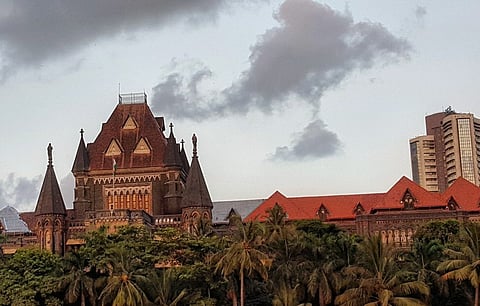
- News
- Columns
- Interviews
- Law Firms
- Apprentice Lawyer
- Legal Jobs
- हिंदी
- ಕನ್ನಡ

The Bombay High Court on Tuesday refused to grant immediate interim relief to television broadcasters who had challenged new Tariff Order by the Telecom Regulatory Authority of India (TRAI) that had prescribed price ceilings and which had directed the television broadcasters to unveil their revised prices by January 15.
This means the TV broadcasters will have to publish the revised prices of their channels by Wednesday.
A Division Bench of Justices SC Dharmadhikari and RI Chagla was hearing a plea filed by broadcasters seeking stay on the Tariff Order and to defer the submission of revised prices.
As per the TRAI release, the pricing conditions include the following:
The sum of the a-la-carte rates of the pay channels (MRP) forming part of a bouquet shall in no case exceed one and half times the rate of the bouquet of which such pay channels are a part.
The a-la-carte rates of each pay channel (MRP), forming part of a bouquet, shall in no case exceed three times the average rate of a pay channel of the bouquet of which such pay channel is a part.
Additionally, the Telecom Authority decided that only those channels which are having MRP of Rs.12 or less will be permitted to be part of the bouquet offered by broadcasters.
Opposing these conditions, organisations such as Film and Television Producers Guild of India, Indian Broadcasting Foundation and broadcasters including Sony Pictures, Star India, Disney, Zee Entertainment, TV18 Asianet Star Communications and others had filed pleas sought a stay on the new Tariff order.
The plea stated,
“..it is manifestly arbitrary to unilaterally and without any application of mind whatsoever, reduce the price cap on the maximum price that a channel can be priced at in order to qualify being made part of a bouquet. There is especially not justification given to reduce the said ceiling from Rs.19 to Rs.12, especially as there is ostensibly a formula on the basis of which Rs.19 was arrived at 3 years ago."
On Tuesday, Senior Counsel Venkatesh Dhond appeared for TRAI and sought a week's time to file affidavit in reply to the pleas.
Senior Advocates Janak Dwarkadas, Aspi Chinoy, Ravi Kadam, Darius Khambata and Navroz Seervai appeared for petitioner broadcasters.
It was submitted by broadcasters that said order is ultra vires and unconstitutional.
To this, Dhond submitted that Tariff Order is a delegated or subordinate legislation and it is presumed to be constitutional.
"All is there for consumers to get adequate opportunity. Public ends paying for unwanted channels and therefore prices are capped. Members of public will be given 30 days to subscribe accordingly."
Dhond went on to submit,
"Total number of broadcasters is 366 out of which 38 are paid broadcasters. Moreover, there are 909 TV channels out of which 330 are paid ones. Few of them have moved the High Court to scuttle the scheme."
Senior counsel Dwarkadas submitted that TRAI issued a press note on January 1 and, despite regulations and precedents therein, 60 days time was to be given to broadcasters.
"However, TRAI has fast forwarded it to 15 days. It will have serious impact on fundamental rights of broadcasters and their business.The broadcasters will require to publish revised rates and then DPOs will have to communicate the same to over 1. 83 crore households who are subscribers."
It was submitted by Senior advocate Khambata that consequences of not filing revised rates in stipulated time will attract coercive steps by TRAI as per Regulations and therefore interim relief needs to be granted until next hearing.
In response, the Bench led by Justice Dharmadhikari said that concerned authority and investors know what the Court is seized of. However, the Court refused to make any comments on merits of plea and did not pass an interim order.
With this, the Court asked TRAI to file an affidavit in response within a week and posted the matter for further hearing on January 22.